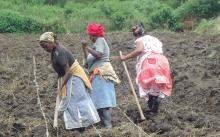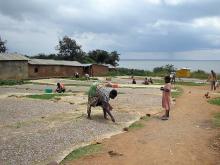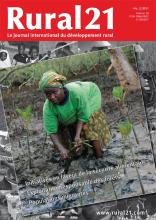Land Library
Welcome to the Land Portal Library. Explore our vast collection of open-access resources (over 74,000) including reports, journal articles, research papers, peer-reviewed publications, legal documents, videos and much more.
/ library resources
Showing items 1 through 9 of 24.Following the end of apartheid, South Africa’s government set itself ambitious goals with a planned land reform. However, there have since been barely any changes in the country’s agricultural structure, and the positive impacts that were hoped for on rural livelihoods have hardly materialised.
The year 2016 marks 15 years since the new wave land reforms became operational in Tanzania. Despite its ambitious goals – encouraging land registration and titling, and empowering women and other vulnerable groups – the results are disillusioning.
The land reform process in Cambodia is full of examples of injustice and human rights violations. Promises to improve the situation of the landless and land-poor citizens have remained unfulfilled. Development co-operation efforts have not changed this either.
In 1978, the rural reform began in China, and since then farmers, including the poor ones, have benefited from a steady growth in income and gradually strengthened food security.
Zimbabwe used to be well-known for its high-quality meat exports. The sector was hard hit by the economic crisis that set in during the 1990s and coincided with the impact of a failed land reform and recurrent drought.
Dans le sillage de la crise alimentaire mondiale de 2007/2008, le Comité de la sécurité alimentaire mondiale (CSA) a subi une profonde transformation.
L’urbanisation est souvent considérée comme ayant des effets néfastes sur le développement rural. En fait, c’est tout le contraire.
On November 18th 2010, the European Union Commissioner for Agriculture and Rural Development, Dacian Ciolo?, o? cially submitted a communiqué proposing a reorientation of the Common Agricultural Policy (CAP) to the EU Parliament, the EU Council and the public.
Rural development and urbanisation are often seen as competing, but in most cases are intimately linked. It is essential that policies re? ect and support the many positive links between rural and urban areas, enterprises and people.








